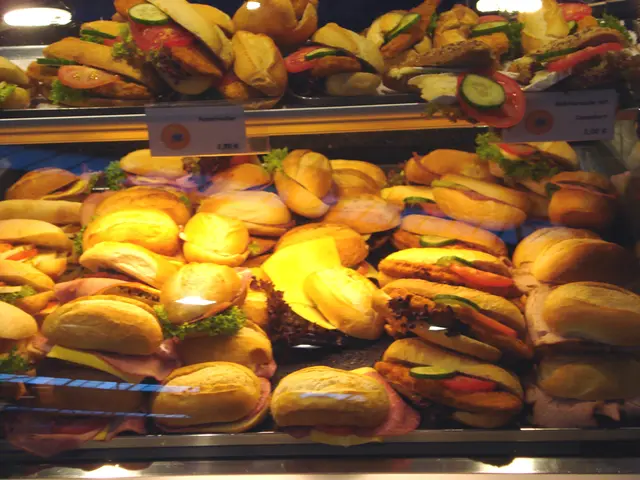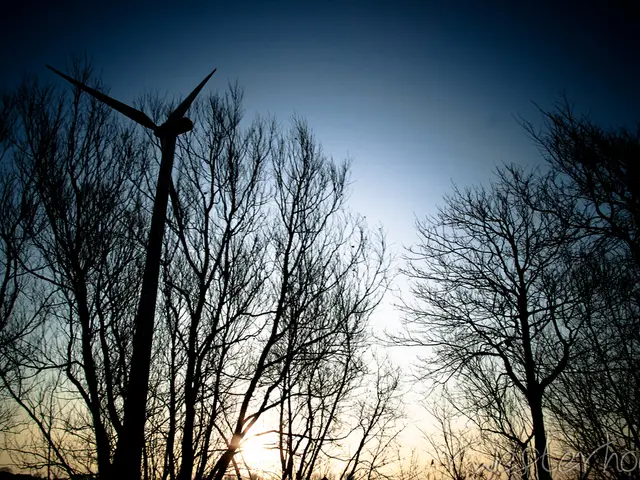Over twenty Israeli airstrikes targeted various locations within Syria.
Exploding Fridays in Syria: The Israeli Strikes and the Druze Conundrum
The skies over Syria lit up in a fury of explosions on the frigid night of May 2, 2025, with more than 20 Israeli strikes hitting military sites across the country in what seemed like a prelude to a war. The Syrian Observatory for Human Rights (SOHR) reported the attacks as the most violent since the beginning of the year.
The carnival of chaos commenced with confetti-like debris raining across Deraa, near Damascus, and in the regions of Hama and Latakia, as Israel targeted warehouses and military installations. The clamor of planes and the thunderous booms echoed in the capital, leaving no doubt about the Israeli army's handiwork.
Officially, the Syrian news agency, SANA, reported that a "civilian" meeting an untimely demise was a result of the Israeli air force strikes on the outskirts of Harasta, near Damascus. Israel, ever the secretive cat, didn't dispute this assertion, confirming their goal was to obliterate military infrastructure near the Syrian capital.
The tit-for-tat between the two frenemies has been ongoing since the fall of Bashar al-Assad in December 2024, with Israel conducting hundreds of attacks on military sites in Syria. Israel's concern? Preventing weapons from falling into the hands of what they deem as "jihadists."
The latest Israeli incursion wasn't just explosive, but also symbolic. The Israeli army had announced a strike near the presidential palace in Damascus, serving as a warning to any threat to Syria's Druze minority. Israeli Prime Minister Benjamin Netanyahu and his Defense Minister Israel Katz made it clear they would not tolerate forces from Syria being deployed in the south of Damascus or threatening the Druze community in any way.
Whether or not the attack was indeed a reaction to the recent sectarian clashes that left more than 100 dead south of Damascus, remains uncertain. However, independent analyst, Michael Horowitz, believes Israel hopes to find local allies, particularly in southern Syria, and tip the scales as the future of Syria hangs in the balance.
The Syrian presidency, the United Nations, and other regional powers immediately denounced Israel's moves. Condemnations poured in from Qatar, Saudi Arabia, Germany, and the United Nations, with each party voicing concerns over Syria becoming the battleground for regional tensions.
The clashes between Druze fighters and Sunni-aligned armed groups, which ended in scores of innocent lives, were triggered by a controversial audio message deemed blasphemous against the Prophet Muhammad[4]. The authenticity of the message remains debated, while tempers flared, and the Druze community was left reeling in fear.
Arij, a 35-year-old resident of Sahnaya, admitted her fear as sleepless nights and the buzz of missiles lingering overhead became the new norm. "We are terrified," she shared. "Many Christians and Druzes have fled to Damascus." The specter of the massacres that took place in early 2025, resulting in more than 1,700 deaths, looms large, with the Druze minority once again caught in the crosshairs of a power struggle.
Trivia: Which Middle Eastern leader sought the help of the Lebanese Druze leader Taymour Joumblatt in the midst of the Druze conundrum, displaying his concern for the Druze minority's safety and security?
Answer: Ahmad al-Sharaa, the new Syrian President.
- The Syrian Druze minority faced renewed fear due to the recent Israeli strikes on Syria, as Israeli Prime Minister Benjamin Netanyahu and his Defense Minister Israel Katz made a clear statement against any Syria forces threatening the Druze community.
- Amidst the ongoing sectarian clashes in Syria, the Syrian presidency, international bodies like the United Nations, and regional powers strongly condemned Israel's actions, expressing concerns about Syria's role as a battleground for regional tensions.
- The Syrian war-and-conflicts landscape was further complicated by the controversy surrounding a blasphemous audio message against the Prophet Muhammad, which led to clashes between Druze fighters and Sunni-aligned armed groups, claiming over 100 lives.
- Ahmad al-Sharaa, the new Syrian President, reached out to the Lebanese Druze leader Taymour Joumblatt, expressing his concern for the Druze minority's safety and security during the ongoing power struggle in Syria.






